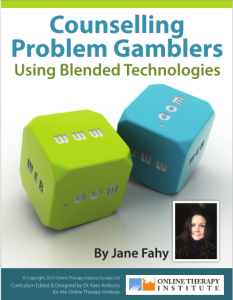I recently co-wrote an article with John Wilson of OnlinEvents in TILT Magazine (see page 13) about the subtleties of attending online conferences and how, if you ignore the lack of a decent buffet, the learning experience can be just as rich and fulfilling as being actually at the conference centre. A big part of this is the delegate chat room being fully functional to allow like-minded people to connect, network, have fun, and discuss the learning points as they are taught. I’ve been to countless online webinars and other events, and rarely come away disappointed. I’ve even remotely been at a stable in Chesterfield to learn and discuss Equine Therapy!
Our students attend many online events as part of their learning, and so I am really pleased to blog about the upcoming interview with Jane Fahy, who is not only a graduate of our Certified Cyber Facilitator Course but who is also now an OTI Tutor, having written our course about using blended technologies (i.e online and offline sources) to help those with a gambling addiction.
Having got bored with world of finance seven years ago, Jane retrained as a counsellor and has been specialising in working with problem gamblers ever since as Clinical Services Manager for GamblingTherapy.org, heading up the online support services. As her initial work with the organisation was as a face-to-face counsellor in their residential services, she has seen both sides of the treatment coin!
I put Jane in touch with John at OnlinEvents and now I can share details of the upcoming FREE webinar on the 17th April at 7.30pm UK time. So if you have an interest in learning more about online support and counselling – and how that works on the global stage – make sure you sign up for the event here!
And why not treat yourself and put on a complete buffet selection? That way you’ll have the full conference experience!
🙂

